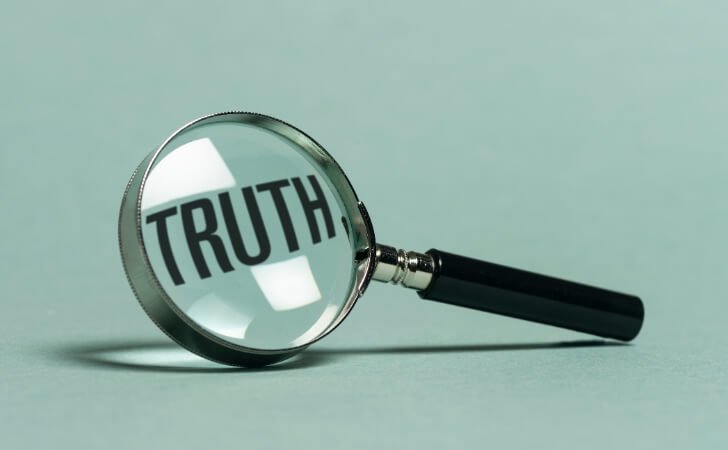AFFILIATE DISCLOSURE
This post may contain affiliate links. An affiliate means Escribr may earn referral fees if you make a purchase through our link without any extra cost to you. It helps to keep this blog afloat. Thanks for your support!
Did you know that by visiting this blog, you are doing good in the world? READ THIS.
In today’s world, technology has changed how we talk to each other.
This has made audio transcription services more needed than ever.
Looking back, I see that audio transcription is indeed a great job and the reasons are quite interesting.
I’ve always loved language and keeping the spoken word alive.
That’s why I chose audio transcription.
I’ve worked on everything from podcasts to business meetings.
It’s a job that matches my passion and offers lots of chances to grow.

Key Takeaways
- Explore the growing demand for audio transcription services and the potential for a fulfilling career.
- Understand the diverse types of audio transcription jobs and the skills required to succeed in this field.
- Gain insights into the earning potential and job prospects within the transcription industry.
- Discover the flexibility and work-from-home advantages that make audio transcription an appealing option.
- Learn about the key skills and qualifications needed to thrive as a professional transcriptionist.
What is Audio Transcription?
Audio transcription turns spoken audio into written text.
It’s key in many fields like law, medicine, media, and business.
Transcriptionists make sure the audio’s content is written down accurately, keeping important info accessible.
Understanding the Role of a Transcriptionist
Transcriptionists are skilled at listening to audio and typing out what’s said.
They need to focus well, type fast, and understand what’s being talked about.
They work with all kinds of audio, from interviews to legal recordings.
Types of Audio Transcription Jobs
There are many types of audio transcription jobs. Each has its own needs and challenges. Here are some common ones:
- Legal Transcription: They transcribe legal recordings like depositions and court trials.
- Medical Transcription: They turn audio of doctor visits and medical reports into text.
- Media Transcription: They transcribe audio from podcasts and videos for captions.
- Business Transcription: They transcribe meetings and business talks.
No matter the field, transcriptionists are vital.
They make sure important info is clear and available to those who need it.
Is Audio Transcription a Good Job?
Thinking about a career in audio transcription?
It’s key to weigh the good and bad to see if it fits your goals and lifestyle.
This job offers flexibility, the chance to work from home, and good pay, but it also has its tough sides.
So it’s smart to know what you’re getting into.
Pros of Audio Transcription
- Flexible work schedule: Many audio transcription jobs let you work from home. This means you can set your own hours, which is great for those who want to balance work and life.
- Growing job prospects: The need for skilled transcriptionists is going up. This makes it a promising career for those looking for remote transcription positions.
- Competitive earning potential: With experience, you can earn good money. This is especially true if you work full-time.
Cons of Audio Transcription
- Attention to detail: Transcription needs you to be very careful. Small errors can mess up the whole transcript. This can be hard for some people.
- Repetitive nature: Doing the same task over and over might not excite everyone. It can get boring.
- Fluctuating workload: The amount of work you get can change. This is because of market conditions, which can lead to ups and downs in your income.
Whether audio transcription is right for you depends on your likes, skills, and career dreams.
Think about the good and bad points to see if it matches your goals and lifestyle.

| Advantages | Disadvantages |
|---|---|
| Flexible work schedule | Attention to detail required |
| Growing job prospects | Repetitive nature of the work |
| Competitive earning potential | Fluctuating workload |
“Transcription requires a keen ear, a meticulous eye, and the ability to multitask – skills that can be invaluable in a variety of professional settings.”
Key Skills Required for Audio Transcription
To be a top-notch audio transcriptionist, you need to master certain skills.
You must have great listening skills, know your language and grammar well, and work fast and accurately.
Good audio transcription starts with listening carefully and catching every word.
It’s important to understand different accents and how people speak.
This helps make high-quality transcripts.
Transcriptionists also need to know their language and grammar inside out.
Being able to spell and punctuate right, and follow grammar rules is key.
This ensures your transcripts are polished and free of mistakes.
Managing your time and staying organized is crucial too.
Transcriptionists have to handle their work well, meet deadlines, and keep their accuracy high.
Key Skills for Audio Transcriptionists:
- Excellent listening and comprehension skills
- Strong command of language and grammar
- Proficiency in typing and keyboarding
- Attention to detail and accuracy
- Time management and organizational abilities
- Familiarity with transcription software and tools
To get better at these skills, you can look into training and certifications.
Online courses, vocational programs, and recognized certifications are great resources.
They offer the knowledge and practice you need to excel in audio transcription.

Earning Potential in the Transcription Industry
Your earnings as a transcriptionist can change based on your experience, skills, and job type.
Freelancers get to set their rates and work on their own terms, yet they might not always have steady work or benefits.
On the other hand, those who work for a company get a steady paycheck and benefits, but they might have less say in their work and pay.
Experts say beginners can make $10 to $15 an hour.
Experienced ones can earn up to $25 an hour or more, depending on the job’s complexity and how fast they need to finish it.
Whether you freelance or work for a company, transcription offers flexible and in-demand jobs.
FAQ
What is audio transcription?
Audio transcription turns spoken words into written text. It’s a key role in many fields like law, medicine, media, and business.
What are the different types of audio transcription jobs?
There are many types of audio transcription jobs. These include legal, medical, and media transcription. Each one needs specific skills and knowledge.
Is audio transcription a good job?
Audio transcription can be a rewarding job. It offers flexibility and the chance to work from home. You can also earn a steady income, but your job prospects and pay can change based on your experience and how you work (freelance or employed).
What skills are required for audio transcription?
To be a great audio transcriptionist, you need to listen well and know language and grammar. You also have to work fast and accurately. Depending on the field, you might need special training or certifications.
How much can I earn as an audio transcriptionist?
How much you can earn varies a lot. Your experience, what area you specialize in, and if you work freelance or employed all play a part. Freelancers might have more freedom but less stability. Employed transcriptionists have a steady income but less flexibility.










